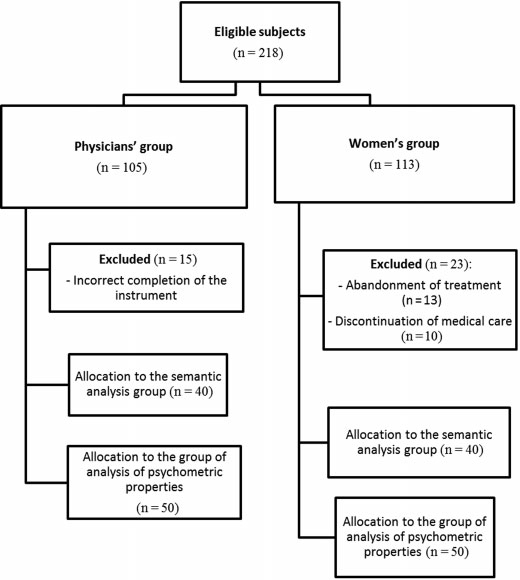Revista Brasileira de Ginecologia e Obstetrícia. 2016;38(9):443-449

to translate and adapt the Patient Satisfaction Questionnaire (PSQ) to Portuguese and to assess its psychometric properties based on internal consistency, test-retest, factor analysis and divergent and convergent construct validities.
The study involved 218 participants and was approved by the local Research Ethics Committee. All participants gave written informed consent and their anonymity was ensured. The instrument was translated and culturally adapted for use in the Portuguese language. The internal consistency and factorial analysis were assessed by patients and physicians. Convergent and divergent validities were also assessed specifically for the patient group, as well as test-retest reliability. The Portuguese versions of the Patient Health Questionnaire (PHQ-9) and State-Trait Anxiety Inventory (STAI) were used for the analysis of the convergent validity. In addition, we applied a questionnaire of clinical and demographic data for the analysis of the divergent validity.
The adapted version of the PSQ showed good Cronbach’s α and test-retest values, and the results of the convergent construct validity between the PSQ and the PHQ-9 (r = 0.34; p = 0.02) and the STAI (r = 0.47; p = 0.001) were negative, significant and moderate correlations. Divergent validity showed significant correlations only with race and education. The Brazilian Portuguese versionof the PSQ proved to be a valid and reliable instrument, with psychometric properties suitable for the assessment of satisfaction among patients with chronic pelvic pain and their physicians in Brazil. The questionnairemay allow the homogenization of reports on this topic in the international literature.
Search
Search in:


Comments